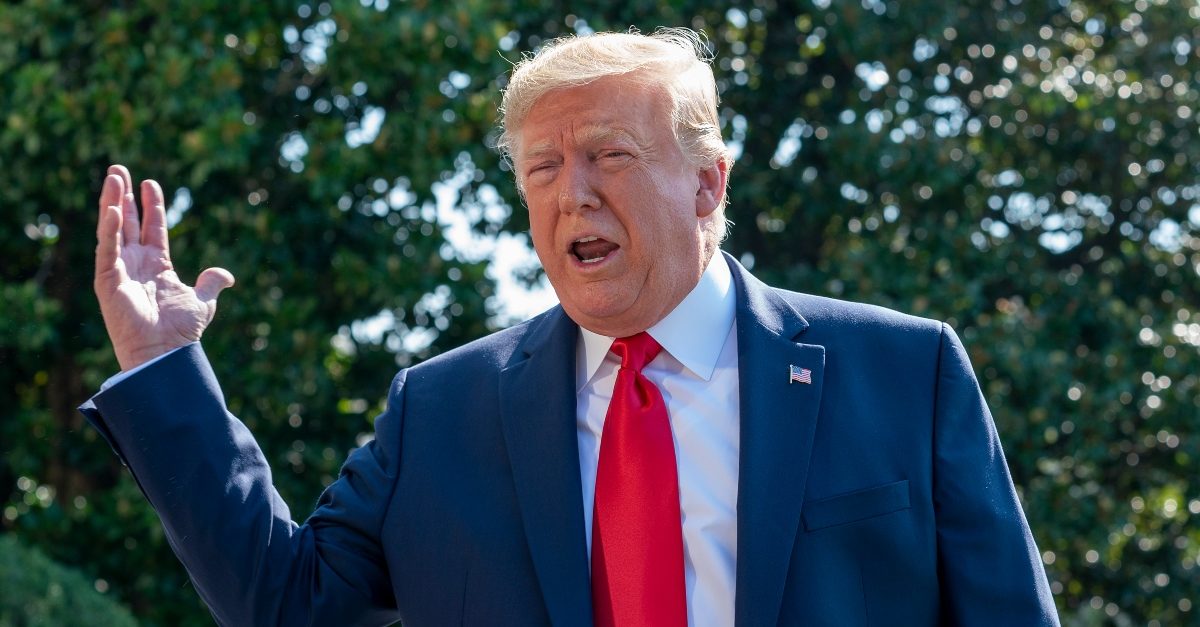
President Donald Trump’s attorneys on Thursday, as expected, filed court documents urging the U.S. Supreme Court to halt a lower court’s ruling ordering Trump’s finance firm Mazars USA to comply with a congressional subpoena and produce the president’s tax returns.
The reason it was expected? On Nov. 25, SCOTUS said as follows:
The application for stay of the mandate presented to The Chief Justice and by him referred to the Court is granted. The issuance of the mandate of the United States Court of Appeals for the District of Columbia Circuit, case No. 19-5142, is stayed pending the filing and disposition of a petition for a writ of certiorari, if such petition is filed on or before December 5, 2019, by noon. Should the petition for a writ of certiorari be denied, this stay shall terminate automatically. In the event the petition for a writ of certiorari is granted, the stay shall terminate upon the issuance of the judgment of this Court. If no petition for a writ of certiorari is filed on or before December 5, 2019, by noon, the stay shall terminate.
“This is a case of firsts,” attorneys for the president wrote regarding Trump v. Mazars USA, LLP. “It is the first time that Congress has subpoenaed personal records of a sitting president. It is the first time that Congress has issued a subpoena, under the guise of its legislative powers, to investigate the President for illegal conduct. And it is the first time a court has upheld any congressional subpoena for any sitting President’s records of any kind.”
Trump’s attorneys assert that the subpoena is invalid as it is not connected to congress’s lawmaking duties and therefore serves “no legislative purpose.”
The case stems from a subpoena issued by Democrats on the House Oversight Committee in April to Mazars USA, requesting multiple years of Trump’s tax documents which lawmakers said would provide insight as to whether current government ethics laws need to be updated.
Thursday’s filing marks the second time President Trump has asked the justices to prevent the release of his personal finances, setting the stage for a ruling that could have a significant impact on the separation of powers in future inter-branch governmental disputes.
The president’s attorneys last month filed a petition for a writ of certiorari with the Supreme Court in his lawsuit against Manhattan District Attorney Cy Vance, asking the court to block Vance’s office from investigating Trump and his business.
However, as previously noted by Law&Crime, while both the Vance and Mazars cases deal directly with the release of Trump’s tax returns, and both have now reached the High Court, the possible repercussions of the Mazars case are likely to be far broader and more significant.
So, what’s next?
Under the Supreme Court’s procedural rules, the House Oversight Committee now has 30 days to respond to Trump’s filing. University of Texas Law Prof. Stephen Vladeck believes the House will try to move the proceedings along as quickly as possible.
“#SCOTUS’s rules give the House 30 days to respond, but I suspect they’ll file by the end of next week. Trump would then have 14 days to reply—after which the case would be ‘distributed’ for the Justices to vote whether to take it up, probably at their Jan. 10 Conference,” Vladeck noted.
Petition for Writ by Law&Crime on Scribd
[image via Tasos Katopodis_Getty Images]
Have a tip we should know? [email protected]